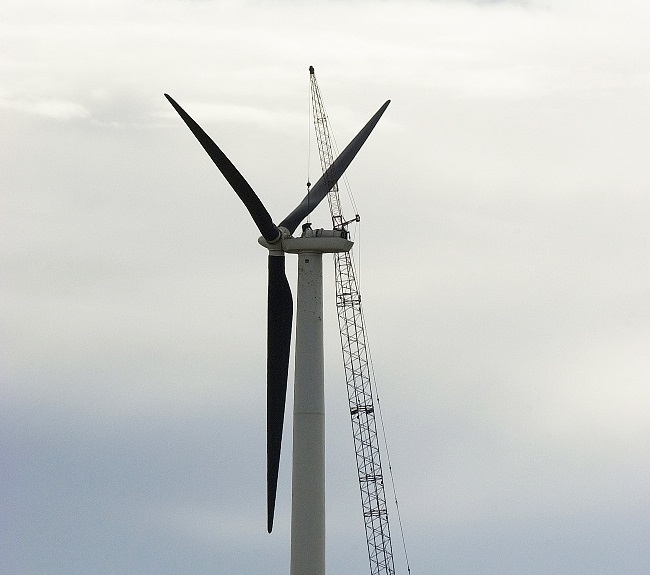Clean Energy First Act headed to House Floor — for third year in a row

Will the third time be the charm for the Clean Energy First Act?
For the third year in a row, the House Climate and Energy Finance and Policy Committee has approved a bill that would require renewables to be the power source of choice when replacing a retired power plant. In neither 2019 nor 2020 did the potential change in policy make it into law.
But Rep. Zack Stephenson (DFL-Coon Rapids) is hoping that economics and environmental concerns are converging at the right time to push HF10 across the finish line.
The first step was taken Thursday when the committee approved the bill, as amended, by a 10-7 party-line vote. Replaced by a delete-all amendment that underwent a slight tweak in language, the Clean Energy First Act is on its way to the House floor.
The bill has no Senate companion, but Stephenson emphasized that Sen. David Senjem (R-Rochester) has sponsored corresponding legislation each of the past two sessions.
Stephenson said the bill’s three goals are carbon reduction, affordability and reliability.
“The clean energy revolution is well underway,” he said. “Today, it’s primarily driven by economics. Just look at the action of the market all around us. Our values and economics are in line with clean energy. The bill is designed to manage the consequences of these changes.”
In addition to requiring the Public Utilities Commission to choose wind, solar, geothermal, hydroelectric and other renewable resources for electricity generation, HF10 would emphasize employing local workers to build and maintain the facilities. The bill was deemed to have no fiscal impact on the state budget.
Two representatives of labor unions praised the bill’s local hiring and prevailing wage provisions, while a representative for non-union contractors opposed both.
Jessica Tritsch, senior campaign representative for the Sierra Club, expressed concern that “last year’s Senate version called dirty energy clean. The Senate version could be a magnet for choices that would move our state backward.” Other testifiers objected to its omission of solid waste incinerators and carbon capture technology.
Republicans introduced 15 other amendments, all of which were defeated.
Rejected amendments dealt with such issues as carbon capture; obtaining iron, copper and nickel from Minnesota sources and protecting the interests of miners; allowing larger hydroelectric projects; allowing the state to store more nuclear waste; and making natural gas exempt from the law.
Rep. Jeremy Munson (R-Lake Crystal) unsuccessfully sponsored three amendments centered around the environmental and human rights impact of the mining and disposal of materials used in wind and solar energy.
Related Articles
Search Session Daily
Advanced Search OptionsPriority Dailies
Speaker Emerita Melissa Hortman, husband killed in attack
By HPIS Staff House Speaker Emerita Melissa Hortman (DFL-Brooklyn Park) and her husband, Mark, were fatally shot in their home early Saturday morning.
Gov. Tim Walz announced the news dur...
House Speaker Emerita Melissa Hortman (DFL-Brooklyn Park) and her husband, Mark, were fatally shot in their home early Saturday morning.
Gov. Tim Walz announced the news dur...
Lawmakers deliver budget bills to governor's desk in one-day special session
By Mike Cook About that talk of needing all 21 hours left in a legislative day to complete a special session?
House members were more than up to the challenge Monday. Beginning at 10 a.m...
About that talk of needing all 21 hours left in a legislative day to complete a special session?
House members were more than up to the challenge Monday. Beginning at 10 a.m...
